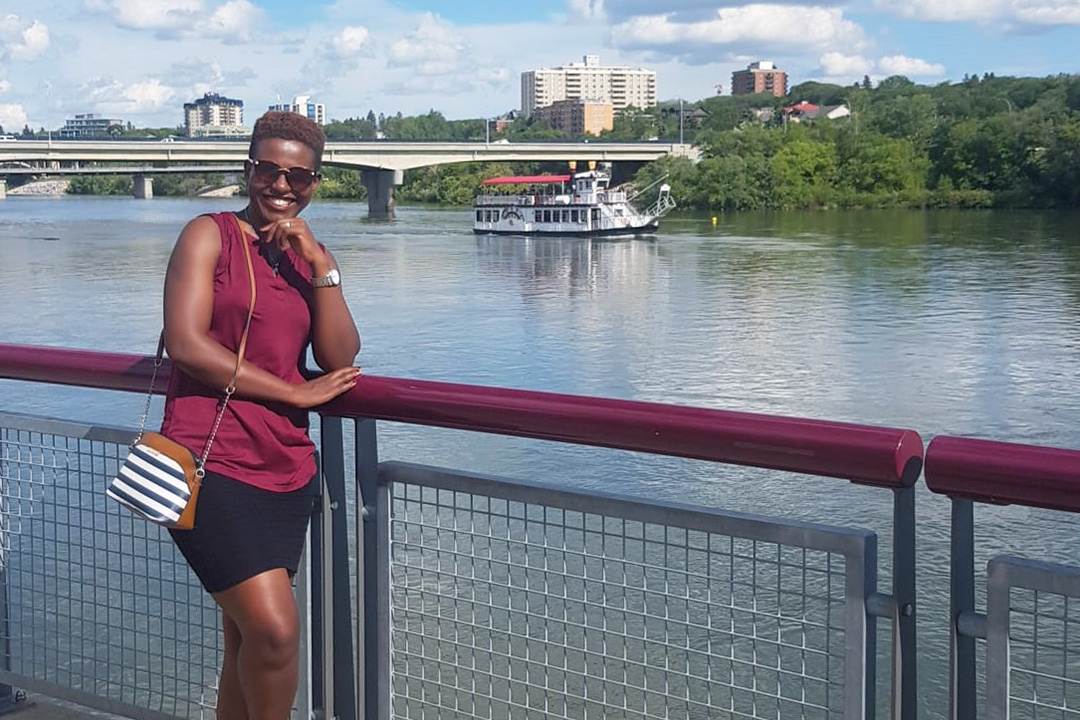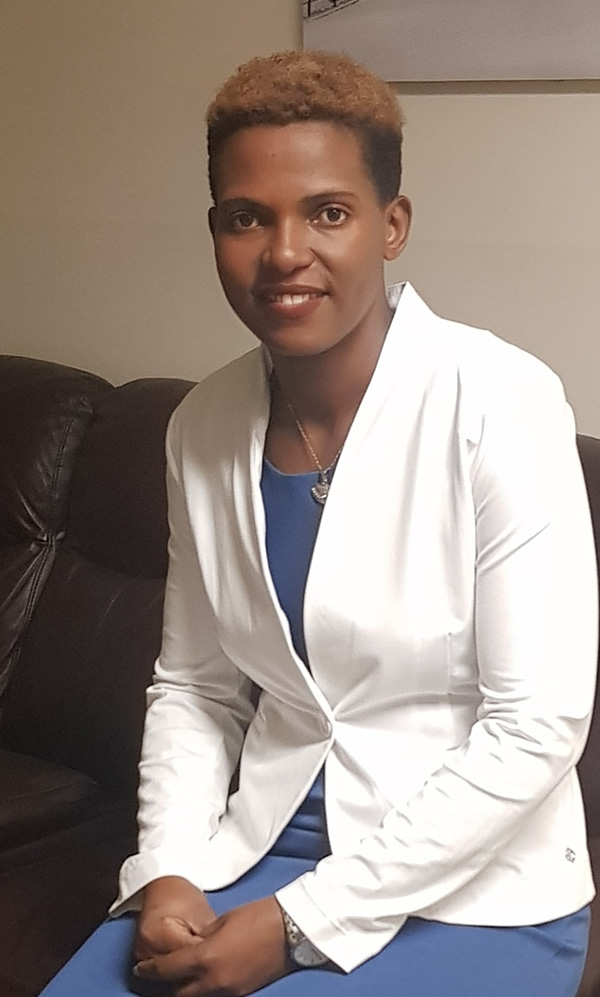
From Rwanda to a world of opportunity for USask student
For Marie Grace Nirere, the decision to move to Canada for a graduate degree in the University of Saskatchewan’s (USask) School of Environment and Sustainability (SENS) was a difficult one.
By Megan EvansPursuing a master’s, which she said is the key to a brighter future for her and her family, paradoxically meant leaving her loved ones back home in Rwanda. Nirere was nine years old at the time of the Rwandan genocide against the Tutsi, and while the country is now stable, an international education is not an option most Rwandans can pursue because of the expense.
When the married mother of two arrived in Saskatoon alone, she quickly realized that completing the program and setting up a life in Canada on her own would be more difficult than she had imagined.
“The city is so quiet and nice. But also, everything seemed new, scary, and weird,” said Nirere. “For instance, the administrative process of getting a social security number, health care, a bus pass—there was a lot of pressure. Additionally, my first class in SENS was really challenging because I could not understand most of our lecturers’ pronunciation.”

Despite the challenges, she persevered. She made friends in her cohort, solved the logistical problems that come with an international move, began working part-time, and settled into a routine. Then, the pandemic happened.
“My family is everything to me,” said Nirere. “It’s been very hard to be separated from them, especially with COVID. When something like this happens, you want to be with your children. I can’t protect them from here. But my friends remind me that I am here studying and working to make their life better, and I keep going. My husband is incredibly supportive of me and we talk almost every day.”
Nirere was surprised by the outpouring of support she received from the SENS community in the early months of the pandemic.
“I couldn’t believe that my supervisor [Dr. Helen Baulch (PhD), associate professor in SENS and the Centennial Enhancement Chair in Aquatic Ecosystem Biogeochemistry] was offering to help me with grocery shopping and checking in on me. My professors were checking to make sure I had internet access and that kind of thing. That really says something about the kind of people here.”
With support from faculty and friends, Nirere’s drive and determination paid off.
“I had only one question in my head: how am I going to finish this program? It was very challenging for me in the beginning,” she said. “But as I talk to you now, I will officially graduate with my master’s degree in sustainable environmental management (MSEM).”
Nirere officially marks her graduation during USask’s virtual Fall Convocation celebration.
After one year in Canada, French-speaking Nirere is now employed as a project co-ordinator at the Saskatchewan African Community of Francophones (La Communauté des Africains Francophones de la Saskatchewan Inc.), where she helps newcomers settle, integrate, and adapt to their new Canadian lives.
She has plans to put her MSEM degree to work within the organization, spearheading a community gardening project for French-speaking Africans in the province, with the hope that the garden would provide them with the opportunity to build community while growing their own produce.
“Grace is among the most determined, dedicated, and professional people I have worked with,” said Baulch. “The pandemic changed everything, and she just dug into what needed to be done. Her progress this year has been incredible to watch. Grace is a shining example of what can happen when personal resolve and community support turn challenges into opportunities.”
As for her future now that she’s graduated, Nirere’s outlook is bright.
“My degree from the University of Saskatchewan means I can get a good job,” she said. “I would love to work and live here in Saskatchewan, and we will have to see what happens. There are important problems to solve everywhere in the world, but we will need participation and involvement from everyone to make this world a better place. My problem might be different from yours, but we must consider each other. We are all connected, we share the same blood.”
Article re-posted on .
View original article.

